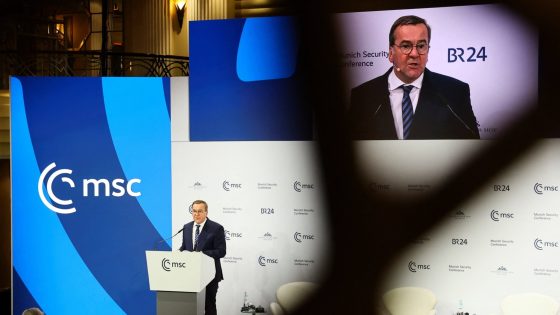On February 16, 2025, tensions rose between the united states and Germany as U.S. officials criticized Germany’s political stance amid growing concerns over far-right movements in Europe. This situation has sparked discussions about the future of transatlantic relations and Germany’s role as a key ally.
- Germany faces criticism from the US.
- Rubio defends Vance's controversial Munich speech.
- German chancellor opposes far-right party inclusion.
- Europe seeks influence in Ukraine post-speech.
- Gillen labels Vance’s censorship claims hypocrisy.
The recent comments from U.S. officials have prompted significant reactions from German leadership. Chancellor Olaf Scholz condemned remarks made by Senator J.D. Vance during a Munich speech that suggested Europe should embrace far-right parties more inclusively. Scholz emphasized that such views contradict democratic values and could undermine stability within Europe.
Key points from this ongoing debate include:
- The U.S. is concerned about the rise of far-right ideologies in Europe.
- Germany remains committed to its democratic principles and inclusion policies.
- This disagreement may affect broader geopolitical strategies involving Ukraine and NATO alliances.
The fallout from these exchanges raises questions about how both nations will navigate their partnership moving forward. As global political landscapes shift, maintaining strong ties may require addressing underlying ideological differences while fostering dialogue on shared goals.
This incident underscores a pivotal moment for Germany as it faces internal pressures while attempting to uphold its commitment to democracy against external critiques from allies like the United States.
































